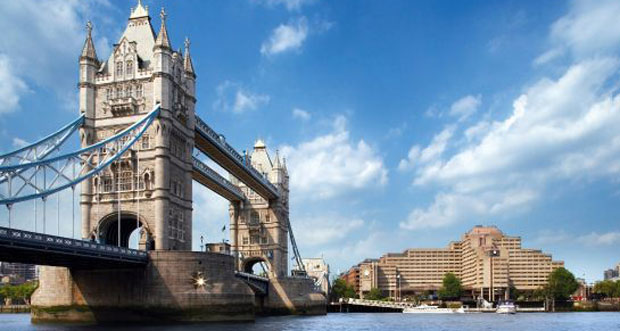HVAC specialist Kimpton has been appointed to reduce carbon impact and improve efficiency of the heating and water systems at the iconic 801-bedroom Tower Hotel in London.
Having expanded nationally, and after almost 60 years in business, experts in this type of project, Kimpton will deliver new boiler plant and a sophisticated 60m flue system, running from the basement plantroom through the hotel to the roof.
The five new industrial condensing boilers will deliver a total heating power of over 3.8mW, via an 8” gas main – 100 times larger than the average domestic supply.
The project will be managed over a 16-week period to ensure zero downtime for the hotel in terms of heating or water supply, and ready for the September heating season. Once installed the new system offers a huge amount of additional flexibility as requirements change over time and season.
Matt Breakwell from Kimpton commented: “We love working on hotel and accommodation projects such as the Tower Hotel in London. We’re used to demanding timelines, challenging space requirements and ensuring the resulting systems are both carbon friendly, innovative, and cost-efficient. We have implemented many similar projects at prestigious sites across the UK, and are glad to once again be working with Davies Partnership on this project.”
Kevin Fields, Commercial Manager at Davies Partnership said: “With their expertise in innovative heating and ventilation systems, Kimpton were the obvious choice for this project. They are highly skilled with the technical knowledge to deliver these kinds of complex projects in short timeframes. We are pleased to be working with them on this project to improve the efficiency and reduce the carbon footprint at Tower Hotel.”
While some personnel are finally returning to the office – the great majority of organisations (up to 83 per cent) anticipate a hybrid mix of on-premises and working from home to continue for the foreseeable future.
This means that when it comes to providing access to the workplace, where once it was simply enough to maintain a welcoming reception for visitors, organisations today must also keep a close eye on access permissions in real-time to keep buildings safe and secure while ensuring they comply with compliance.
Pitney Bowes Smart Access Management in association with FMJ has produced a new White Paper which explains how to create a welcoming, actively managed environment for authorised people.
It explains how new Smart Access Management™ (SAM) delivers a complete, real-time and data-driven view of all your people, visitors and contractors, to help give you greater control and visibility.
To download the white paper click here.





